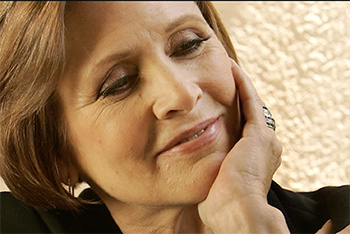Tip #1328: Rewrites & Script Doctors
… for Random Weirdness
Tip #1328: Rewrites & Script Doctors
Larry Jordan – LarryJordan.com
Script doctors have many roles – but one goal: Make a film as good as it can be.


This article, written by Jourdan Aldredge, first appeared in PremiumBeat.com. This is a summary.
In the world of screenwriting, there are many, many moving parts. You might think writing a script is as easy as sitting down and putting pen to paper (or, more accurately, opening a laptop and typing away). However, for small indie features to big-budget blockbusters, developing a screenplay can take years and often involves many different writers.
One of the most notable titles for a script revisionist is the infamous “script doctor,” who seems to have magical screenwriting powers in the industry. In this article, let’s take a moment to explore these script doctors and break down who they are and what they actually do.
According to a most basic Wikipedia definition, a script doctor is “a writer or playwright hired by a film, television, or theater production to rewrite an existing script or polish specific aspects of it.” The definition goes on to include examples of specific parts of a script that can be rewritten, including: “structure, characterization, dialogue, pacing, themes, and other elements.”
For those exploring the art of revision and script doctoring today, the basic elements of a script doctor rewrite will usually fall into these distinct rewrite categories.
- Brainstorming and Basic Ideation: These script doctors help early on in the process with some of the big picture ideas through brainstorming. They can help lay out the basic elements of a story, define the emotional crux, then leave the majority of the actual script to be written by a single writer.
- Story and Character Changes: Conversely, at times a script doctor may be needed after an initial idea is laid out, but to help further develop and refine a project’s central story and characters.
- Alternate Scenes and Endings: Similarly, a script doctor is often needed to come in towards the end of the creative process to help wrap up a film that might be stuck on the ending. This is one reason you often see alternate versions or endings in a film that was doctored or rewritten at the last minute.
- Audience Feedback Revisions: It’s standard practice for big-budget features to use test screenings and audience feedback to judge if a project is ready to go, or might need revisions to its script or direction. Script doctors can be brought in with the goal of taking audience feedback to help revise a script to better meet audience expectations and demand.
- Final Production Polish: Perhaps the most common form of script doctoring comes as a last stage in the script process as a means to help “polish” or “punch-up” a script with extra flourish. These revisions are often minor and quick without changing the crux of a story.
This article has more details on the process of script doctors and fixing scripts, along with a variety of links to learn more.
EXTRA CREDIT
Two famous script doctors: Aaron Sorkin and Carrie Fisher.


Leave a Reply
Want to join the discussion?Feel free to contribute!